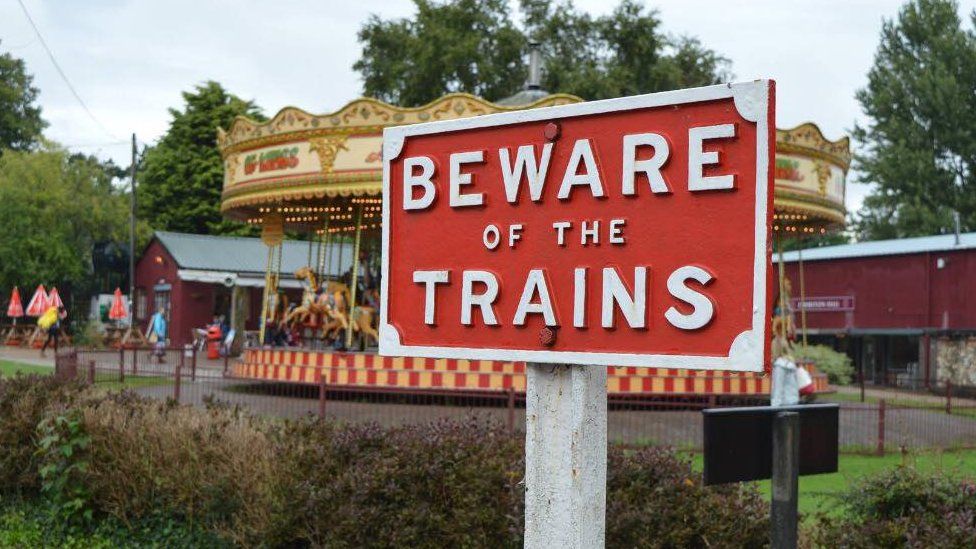Norfolk steam train museum's fear over new power line
- Published

A stream train museum said it feared for its future due to plans for a power line to cut across its rail lines.
Bressingham Steam Museum and Garden, between Thetford and Diss in Norfolk, said a "significant proportion" of its site would be affected by new pylons.
The proposed 112 mile-long (180km) high voltage line would run between Norwich, Suffolk and Essex.
National Grid said it was "carrying out assessments" to find "the most appropriate way" to run the line.
The pylons are part of a proposed 400kV electricity transmission line between Norwich and a new Bramford substation near Ipswich, and then to Tilbury in south Essex, called the East Anglia Green Energy Enablement project.
National Grid said the line was needed to carry electricity from offshore wind turbines.
Phillip Rooke, curator of the steam museum, told the Local Democracy Reporting Service: "The proposed route of the pylons will cross two of the museum's railways.
"There would be serious implications for the future sustainability of the museum if a pylon was to be erected directly on or next to our railway lines.
"We do not own the surrounding land and therefore would be unable to reroute the railways. These railways are an important part of steam preservation and Norfolk heritage."
The two lines are the Fen Railway, built in 1966, and the Waveney Valley Railway, built in 1974 by museum founder Alan Bloom.
Mr Rooke said the museum would work with other nearby groups to campaign against the "disruptive, potentially disastrous scheme".
A National Grid spokesman said: "We are governed by a number of licences and regulatory obligations and we've been carrying out assessments and studies to find the most appropriate way to achieve this in East Anglia, and in other parts of the country. We feel these proposals best meet our obligations."
The spokesman added National Grid wanted to work with communities and businesses to develop the project and encouraged people to take part in the consultation, which lasts until 16 June.
Find BBC News: East of England on Facebook, Instagram and Twitter. If you have a story suggestion email [email protected]
- Published6 June 2022
- Published22 April 2022